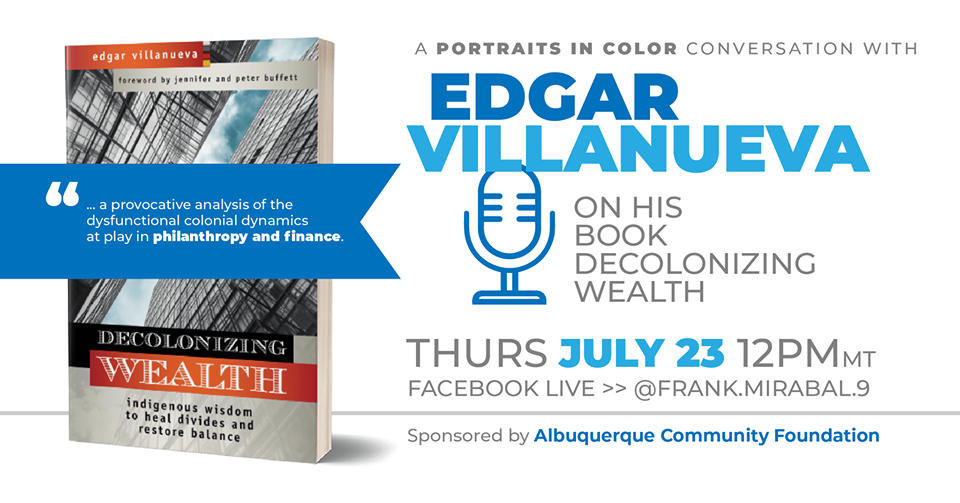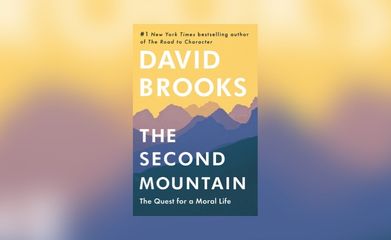
Posted 07/20/2020
By Albuquerque Community Foundation Staff
Decolonizing Wealth to Restore Balance
Decolonizing Wealth: Indigenous Wisdom to Heal Divides and Restore Balance by Edgar Villanueva, could not be timelier. In the intense spotlight on our society’s overt and systemic racism after the death of George Floyd, the 2018 bestselling book offers hopeful and compelling alternatives to the dynamics of white domination of our culture. This white domination comes as the result of the colonization mindset. Specifically, the book discusses the colonization mindset in the philanthropic and social finance sectors.
But what does colonization have to do with philanthropy? A lot, it turns out. The foundation world is mostly white (92% of foundation CEOs), mostly male (89% of foundation boards), and mostly giving to white-led or focused causes (92% of giving). A savior mentality comes part and parcel with colonizers. This attitude that we know best because we are the most civilized, wealthiest and most “successful,” means that the ones with the money get to decide. They decide to which organizations and groups the money goes, what rules grantees play by and what programs get funded.
Villanueva argues for an indigenous worldview. Here, the outcome of philanthropy (usually money) takes on a deeper and higher meaning. Money can be used as medicine to restore balance. But this can only happen if the philanthropy sector and the people working in it are willing to “decolonize” their thinking and actions. That difficult process starts with acknowledging that the resources that philanthropy uses, an estimated $449.64 billion in 2019, was accumulated through violence, trauma and the institutionalization of racism.
He then outlines seven steps for healing. These steps aren’t linear. In an indigenous way of thinking, the steps are a circle that feeds on and relates to each point on it:
- Grieving – stopping and feeling the hurts we’ve endured
- Apologizing for the hurts we’ve caused
- Listening to those excluded and exploited by the system, whose perspective and wisdom is needed to fix it
- Relating – understanding we don’t have to agree in order to respect and learn from each other
- Represent – building new decision-making tables rather than setting token places at colonial tables
- Investing our all our money where our values are, rather than chasing high returns 7. Repairing – using money to heal where people are hurt and stopping more hurt from happening
Villanueva opens and concludes his book with the observation that in the Native belief system, we are all related and all connected. The Native way of healing is to bring the perpetrator into the circle of healing, because healing cannot occur unless everyone – the oppressed and the oppressor – are part of the process. That is, ultimately, what decolonization is about.
Darren Walker, Ford Foundation President and author of From Generosity to Justice: A New Gospel of Wealth recently wrote an op-ed in the New York Times. The op-ed calls on philanthropic organizations to move away from giving as a way to fix the symptoms of a problem. That’s generosity. Instead, he asks us a more profound question. What are we willing to give up in order that the underlying disparities, whether they be economic, racial, educational or lack of opportunity, are remedied? That’s justice.
Villanueva’s ideas about decolonization of our charitable giving system complement Walker’s exhortation to turn from a fix to a justice mechanism. Ultimately, philanthropy cannot nor should it dictate solutions. Because in the end, no one knows better how to address issues of inequality than those who are grappling with them.
Other Community Stories

COVID-19 and Inequality

Climbing The Second Mountain


